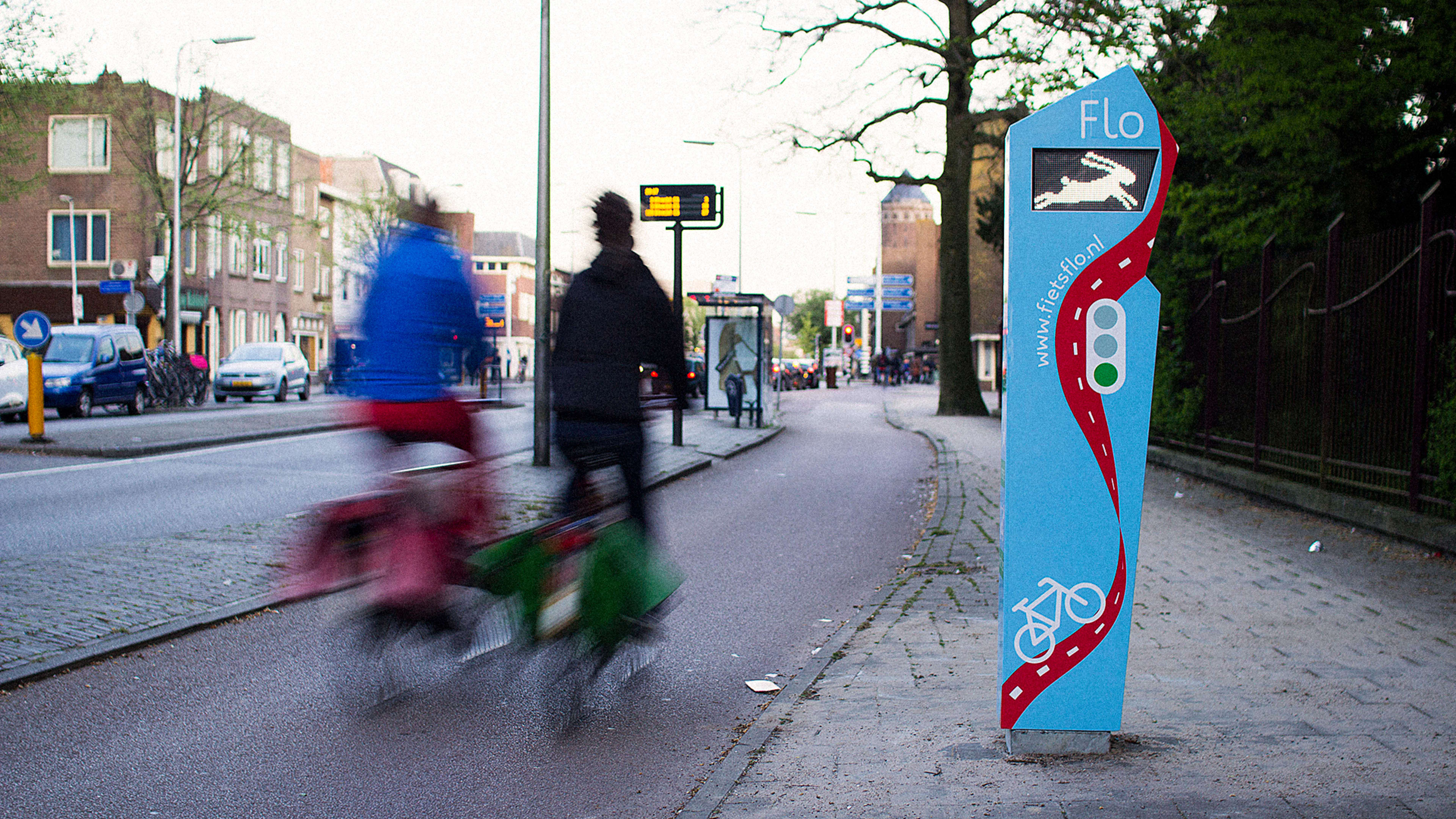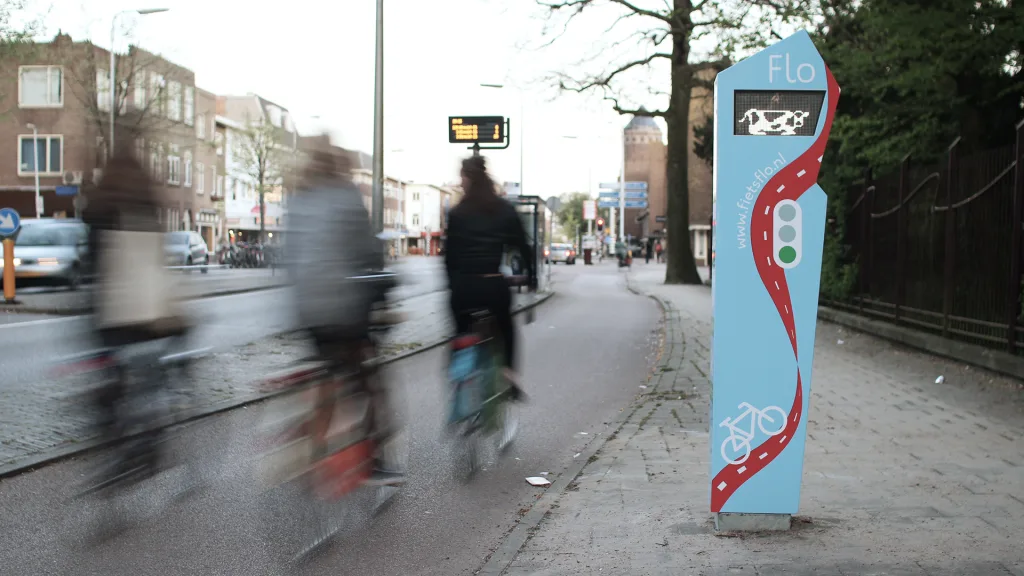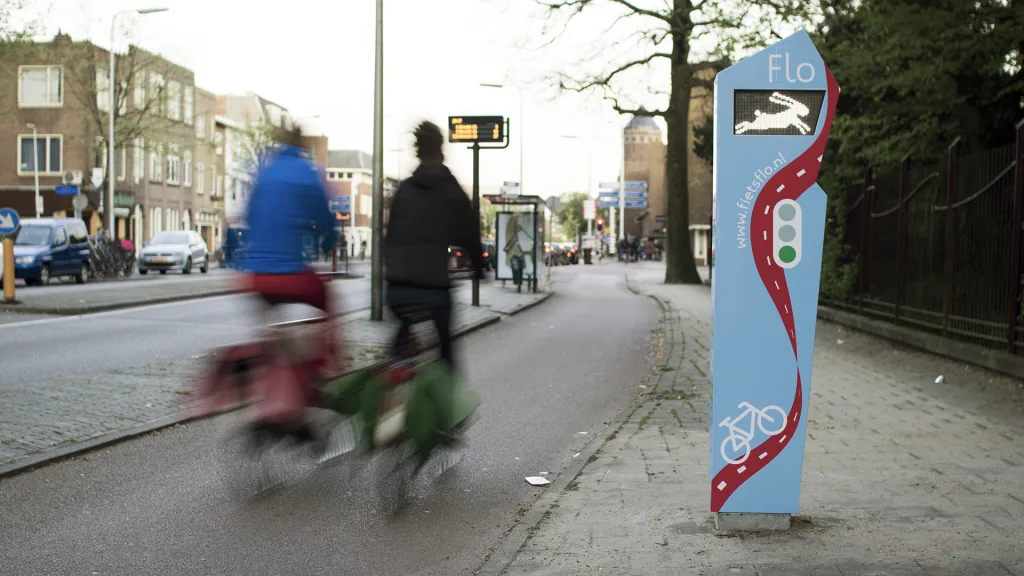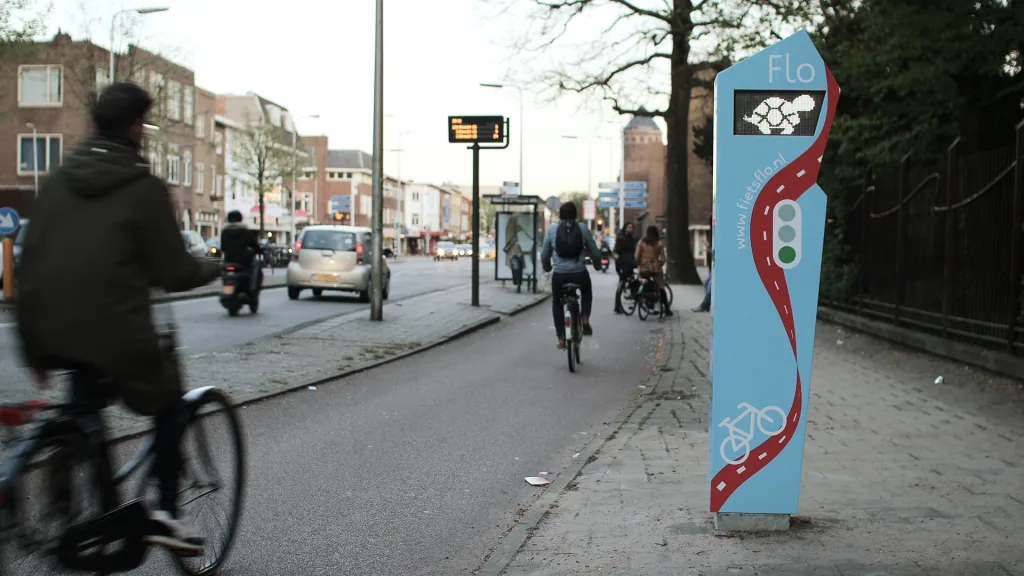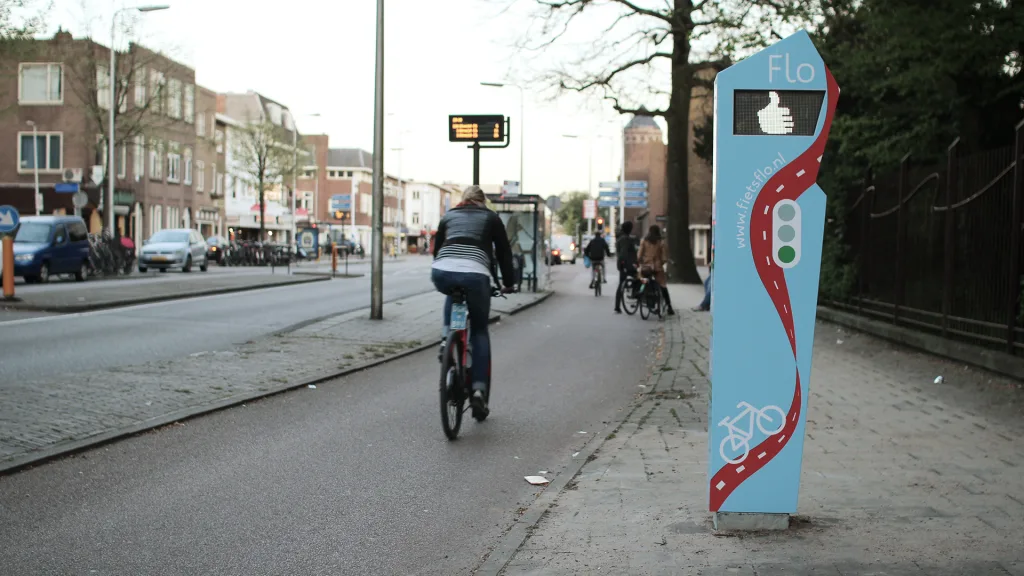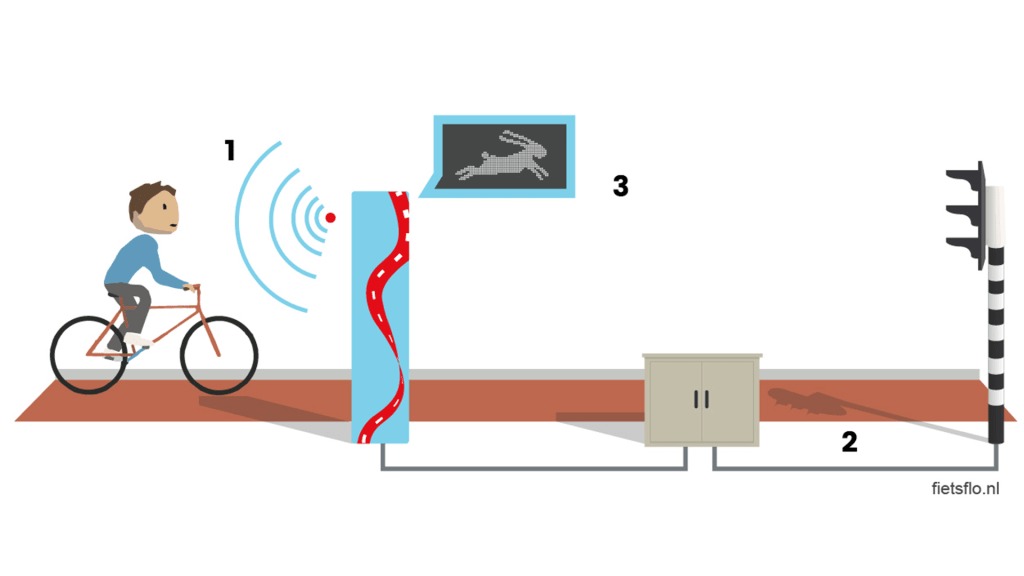In the Dutch city of Utrecht, local policy favors bicycles over cars. On “bicycle streets,” bikes have priority, and cars are “guests.” For many commuters, it’s possible to ride to work or school via separated bike lanes and bike-only bridges and tunnels. The central train station is home to the world’s largest indoor bike parking lot (by 2020, it will have spaces for 33,000 bikes) with its own internal bike lanes and digital signs guiding people to open parking spots.
The electronic kiosks are designed to help cyclists speed up their commutes.
All of this has worked to convince people to ride instead of drive, and roughly 60% of trips to the city center happen on a bike. But the city wants people to ride even more often, and is now testing a new type of bike infrastructure: electronic kiosks designed to help cyclists speed up their commutes by coaching them to catch a series of green lights without having to come to a stop.
When the posts detect you riding by, it calculates your speed and whether you’ll make the next light. If you’re too slow, it flashes a cartoon rabbit. If you’re too fast, it flashes a tortoise. A thumbs-up indicates that you’re traveling at exactly the right speed. When there’s too much traffic and you’ll have to stop no matter what, the sign shows a cow, meant to symbolize a herd of cattle blocking traffic in the countryside.
“In the Netherlands, the biggest frustration for cyclists is the traffic lights,” says Jan-Paul De Beer, head of Springlab, a Utrecht-based design firm that invented the kiosks, called Flo, which the city is now testing. “If you cycle through the city, after every minute you have to stop again. It’s not ideal. That, for us, was the inspiration to do something about it.” The company focuses on how to get people more active, and funded the development of the new technology itself.
As cities like Utrecht grow, bike traffic is getting worse. “Cycling is getting more popular, so you see also more people in the biking lanes,” he says. “More people waiting in line, more frustration. It’s like everybody sitting in cars in a traffic jam.” By regulating speed, Flo keeps bikes moving. The kiosks also communicate with traffic signals to turn them green, when possible, as a bike approaches.
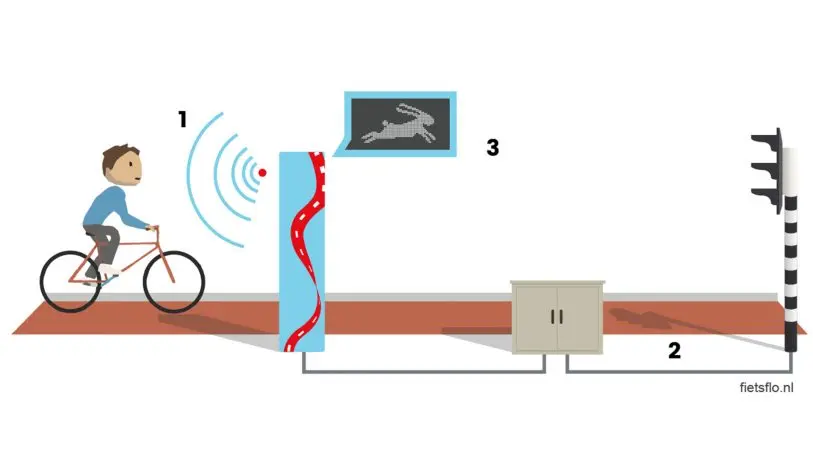
“If you make it, it feels like victory–yes, I made the green light,” says De Beer. “It’s really kind of a game experience.”
The first Flo kiosk is installed at one of the most dangerous intersections in the city, where dozens of serious accidents can happen each year. The city is hoping that the technology can help reduce the number of cyclists that try to squeak through the red light there. If tests are successful, the posts could be rolled out throughout the city. The cities of Eindhoven and Antwerp will install prototypes in the coming weeks.
“We just launched in the Netherlands, but it’s also available for international use,” De Beer says. “We want to help cyclists all over the world.”
Recognize your brand’s excellence by applying to this year’s Brands That Matter Awards before the early-rate deadline, May 3.
